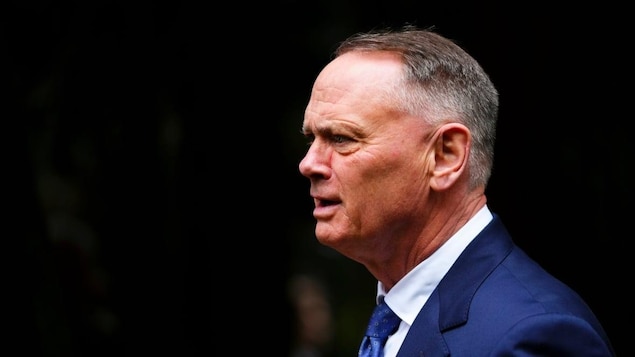In a disturbing development that has sent shockwaves through Canada’s security establishment, former military member Nathaniel McGuinty now faces serious terrorism charges related to an alleged militia plot targeting infrastructure across the country. The arrest, which came after months of covert investigation, highlights growing concerns about extremism within military ranks and raises urgent questions about the intersection of military service and radical ideologies.
McGuinty, 28, was charged Tuesday with four terrorism-related offenses, including participating in or contributing to a terrorist group’s activities. The RCMP alleges he was connected to a neo-militia group called “The Diagram,” which allegedly planned attacks on critical Canadian infrastructure, government buildings, and electrical systems.
“This investigation uncovered extremely concerning behavior from individuals with military training who sought to weaponize those skills against Canadian society,” said RCMP Commissioner Mike Duheme during a press conference in Ottawa. “The gravity of these allegations cannot be overstated.”
The investigation, which began in September 2023, revealed that McGuinty had allegedly been recruiting other former military personnel into the extremist organization. According to court documents, the group maintained an extensive online presence where they shared tactical planning, weapons training, and encrypted communications about potential targets.
Security experts point to a troubling pattern emerging globally. Dr. Barbara Perry, Director of the Centre on Hate, Bias and Extremism at Ontario Tech University, told CO24 News that military training creates a dangerous combination when paired with extremist ideology.
“We’re seeing a concerning trend where individuals with legitimate tactical training are being drawn to anti-government movements,” Perry explained. “Their expertise in logistics, weapons handling, and strategic planning makes them particularly dangerous when radicalized.”
The Department of National Defence has launched an internal review following the arrests. Defence Minister Bill Blair acknowledged the seriousness of the situation during a Canada News interview: “While the vast majority of Canadian Armed Forces members serve with honor and integrity, we cannot ignore instances where military training might be misused.”
McGuinty’s alleged group, “The Diagram,” reportedly maintained connections with similar organizations in the United States and Europe. Intelligence sources speaking on condition of anonymity revealed to CO24 Politics that international security agencies have been monitoring these cross-border extremist networks with increasing concern.
The Canadian Security Intelligence Service (CSIS) annual report, released earlier this year, had already identified ideologically motivated violent extremism as a “persistent and evolving threat to national security.” The report specifically noted the threat posed by individuals with specialized military or tactical training who become radicalized.
For communities near McGuinty’s hometown of Cornwall, Ontario, the news has been particularly shocking. “He was just a regular guy who served his country,” said former neighbor Martin Desjardins. “It’s hard to imagine how someone goes from defending Canada to allegedly plotting against it.”
Legal experts suggest the case presents unique challenges for prosecutors. Criminal defense attorney Joanne Griffith told World News: “Terrorism cases involving former military personnel require prosecutors to establish not just intent, but also that the accused’s military knowledge was being actively repurposed for terrorist activities.”
The arrest comes amid growing attention to extremism in military contexts across Western democracies. A parliamentary committee study completed last year found concerning gaps in how Canada screens for and addresses extremist ideologies within its armed forces.
As McGuinty awaits his next court appearance scheduled for December, security analysts are urging a broader conversation about the vulnerabilities within military recruitment and veteran support systems. The question now confronting Canadian society extends beyond this specific case: How can a nation better protect both its defenders and itself from the dangerous convergence of military expertise and extremist ideology?

























